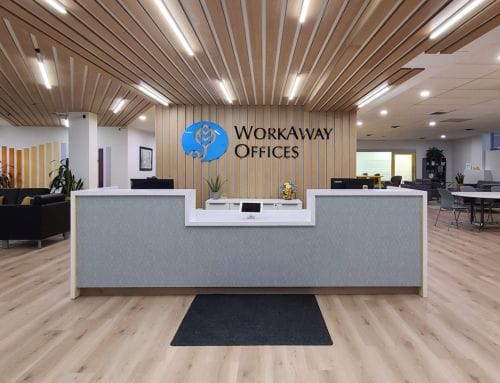Regardless of whether you’re just starting out or you’ve been in business for many years, one question that you must ask yourself is, why would anyone want to buy from me? I know what you’re going to say, 1) Because I’m good at what I do, 2) Because I’m trustworthy, 3) Because I can sell anything. This may all be true, but it doesn’t set you apart from your competitors.
It’s a super competitive world out there and consumers can now buy almost anything through the Internet, and in many cases for a better price. This also holds true for numerous service-based businesses, such as; income tax preparation, accounting, investing, web designs, and so on.
Internet commerce experts are predicting that the next wave of online sales will be the creation of Internet based solutions for products and services that have historically required human intervention.
So….how will your business (that has relied on your specific expertise) continue to grow and prosper, when consumers will be able to shop for similar services online, for a better price and in a more convenient way?
In his book titled “Competitive Strategy”, Michael E. Porter states that there are three generic competitive strategies that a company can use to outperform their competitors; overall cost leadership, differentiation, and focus. While, it’s not impossible for a firm to pursue more than one approach, be aware that implementing even one strategy requires total commitment.
Overall Cost Leadership
Costco is a great example of overall cost leadership. Their model pursues an aggressive mandate of efficient scale facilities, tight controls on costs and overhead, cost minimization in areas such as advertising, service, sales force and so on.
A great deal of managerial attention to cost control is necessary to achieve these goals. Low cost, relative to their competitors becomes the strategic theme running through the entire organization.
Differentiation
The second generic strategy is offering a differentiating product or service that is perceived industry wide as unique. Approaches to differentiation can take many forms, whether it’s a brand or design (Mercedes in automobiles or Four Seasons in hotels) or it may be the exclusive services that a firm may offer, such as personal services for high net worth individuals.
Focus
The final generic competitive strategy is focusing on a particular buyer group, segment of the product line or geographic market. Similar to differentiation, focus can take many forms and its objective is to serve a particular segment with excellence, and each organizational function is created with this objective in mind.
The strategy rests on the premise that the firm can service its narrow strategic market more effectively or efficiently than competitors who are competing more broadly. As a result, the firm achieves differentiation from better meeting the needs of the particular target, or through lower costs in serving this target, or both.
A great example of a focused firm is Midas Muffler and Speedy Muffler. Both firms target their market on consumers that need a new muffler, and are able to provide the service at a lower price than traditional competitors, along with the convenience of drive-in with no appointment necessary.
What is Your Strategy?
For small business owners, it is absolutely critical that you have a competitive strategy and a plan to stick to it. For many, the best competitive strategy would be to focus on a particular buyer group, segment of the product line, specialized service or geographic market. Start by asking yourself some tough questions, such as “why would anyone buy my product or service over someone else’s?”
Take some time to analyze your direct and indirect competitors, and determine if your competitors have ignored a niche or have ignored a certain segment of the market that you can capitalize on.
The company that achieves focus may also potentially earn above-average returns in its industry, and this position can help provide an important defense against competitive threats.
Regardless of whether you’re just starting out or you’ve been in business for many years, one question that you must ask yourself is, why would anyone want to buy from me? I know what you’re going to say, 1) Because I’m good at what I do, 2) Because I’m trustworthy, 3) Because I can sell anything. This may all be true, but it doesn’t set you apart from your competitors.
It’s a super competitive world out there and consumers can now buy almost anything through the Internet, and in many cases for a better price. This also holds true for numerous service-based businesses, such as; income tax preparation, accounting, investing, web designs, and so on.
Internet commerce experts are predicting that the next wave of online sales will be the creation of Internet based solutions for products and services that have historically required human intervention.
So….how will your business (that has relied on your specific expertise) continue to grow and prosper, when consumers will be able to shop for similar services online, for a better price and in a more convenient way?
In his book titled “Competitive Strategy”, Michael E. Porter states that there are three generic competitive strategies that a company can use to outperform their competitors; overall cost leadership, differentiation, and focus. While, it’s not impossible for a firm to pursue more than one approach, be aware that implementing even one strategy requires total commitment.
Overall Cost Leadership
Costco is a great example of overall cost leadership. Their model pursues an aggressive mandate of efficient scale facilities, tight controls on costs and overhead, cost minimization in areas such as advertising, service, sales force and so on.
A great deal of managerial attention to cost control is necessary to achieve these goals. Low cost, relative to their competitors becomes the strategic theme running through the entire organization.
Differentiation
The second generic strategy is offering a differentiating product or service that is perceived industry wide as unique. Approaches to differentiation can take many forms, whether it’s a brand or design (Mercedes in automobiles or Four Seasons in hotels) or it may be the exclusive services that a firm may offer, such as personal services for high net worth individuals.
Focus
The final generic competitive strategy is focusing on a particular buyer group, segment of the product line or geographic market. Similar to differentiation, focus can take many forms and its objective is to serve a particular segment with excellence, and each organizational function is created with this objective in mind.
The strategy rests on the premise that the firm can service its narrow strategic market more effectively or efficiently than competitors who are competing more broadly. As a result, the firm achieves differentiation from better meeting the needs of the particular target, or through lower costs in serving this target, or both.
A great example of a focused firm is Midas Muffler and Speedy Muffler. Both firms target their market on consumers that need a new muffler, and are able to provide the service at a lower price than traditional competitors, along with the convenience of drive-in with no appointment necessary.
What is Your Strategy?
For small business owners, it is absolutely critical that you have a competitive strategy and a plan to stick to it. For many, the best competitive strategy would be to focus on a particular buyer group, segment of the product line, specialized service or geographic market. Start by asking yourself some tough questions, such as “why would anyone buy my product or service over someone else’s?”
Take some time to analyze your direct and indirect competitors, and determine if your competitors have ignored a niche or have ignored a certain segment of the market that you can capitalize on.
The company that achieves focus may also potentially earn above-average returns in its industry, and this position can help provide an important defense against competitive threats.




